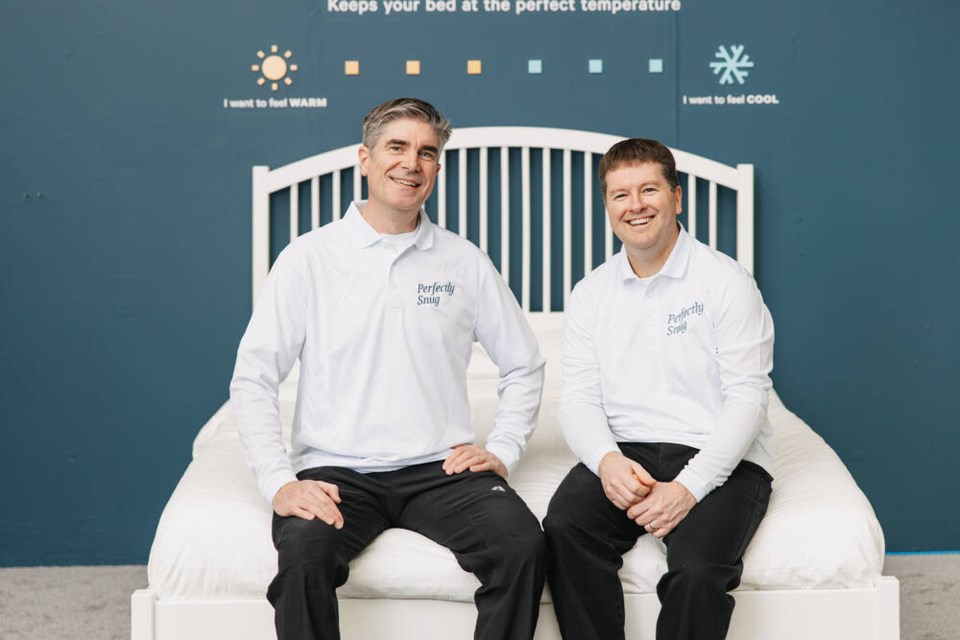A pair of Tsawwassen entrepreneurs were showcased on the Dragons’ Den recently.
Jason Elliott and Marty Furse co-founded Perfectly Snug in November 2018, introducing their primary invention, The Smart Topper.
On the Oct. 26th episode of the Dragons’ Den on CBC, the entrepreneurs introduced the product and ultimately got an offer.
Perfectly Snug sought $400,000 in exchange for five per cent of the company, with a primary focus on advertising and expanding their networks.
“The biggest challenge right now is funding. Customers love the product, and we’re getting sales faster than we can build them, so we need money to expand our capacity and fuel the growth,” Furse said.
Perfectly Snug accepted an offer from “Dragon” Michele Romanow for 10 per cent of the company, but the deal has not been finalized yet.
“We felt that the value of the company has been going up since that show, and her offer was well below our evaluation. So far nothing has materialized,” Furse said.
Their innovative bed cooling system is patented and consists of a two-inch layer placed on top of the mattress, with internal fans circulating air beneath it. Built-in sensors ensure automatic temperature regulation, providing the preferred level of cooling or heating for comfort during sleep. Users can also create a profile, allowing the system to maintain different sleep and wake times’ temperature settings.
“The idea started with me having trouble sleeping. I had struggled for years to get a good sleep, and I figured, I am an engineer, so I took the technical approach,” Elliott said. “We found out many people have the same problem. We could help a lot of them by coming up with something like this.”
Elliott initiated his sleep study by equipping his bed with sensors. His research revealed that after 30 minutes in the same position, skin temperature would rise to match the core temperature, leading to discomfort and frequent tossing and turning to try to cool down. This ongoing movement significantly disrupted deep sleep, as well as kicking off blankets, which would lead to awakening due to coldness.
After testing various prototypes, they successfully created a system that adapts to individual temperature preferences without adjusting to blankets or room temperatures.
The company has an active online presence, with more than 2,000 people now sleeping on their products.



